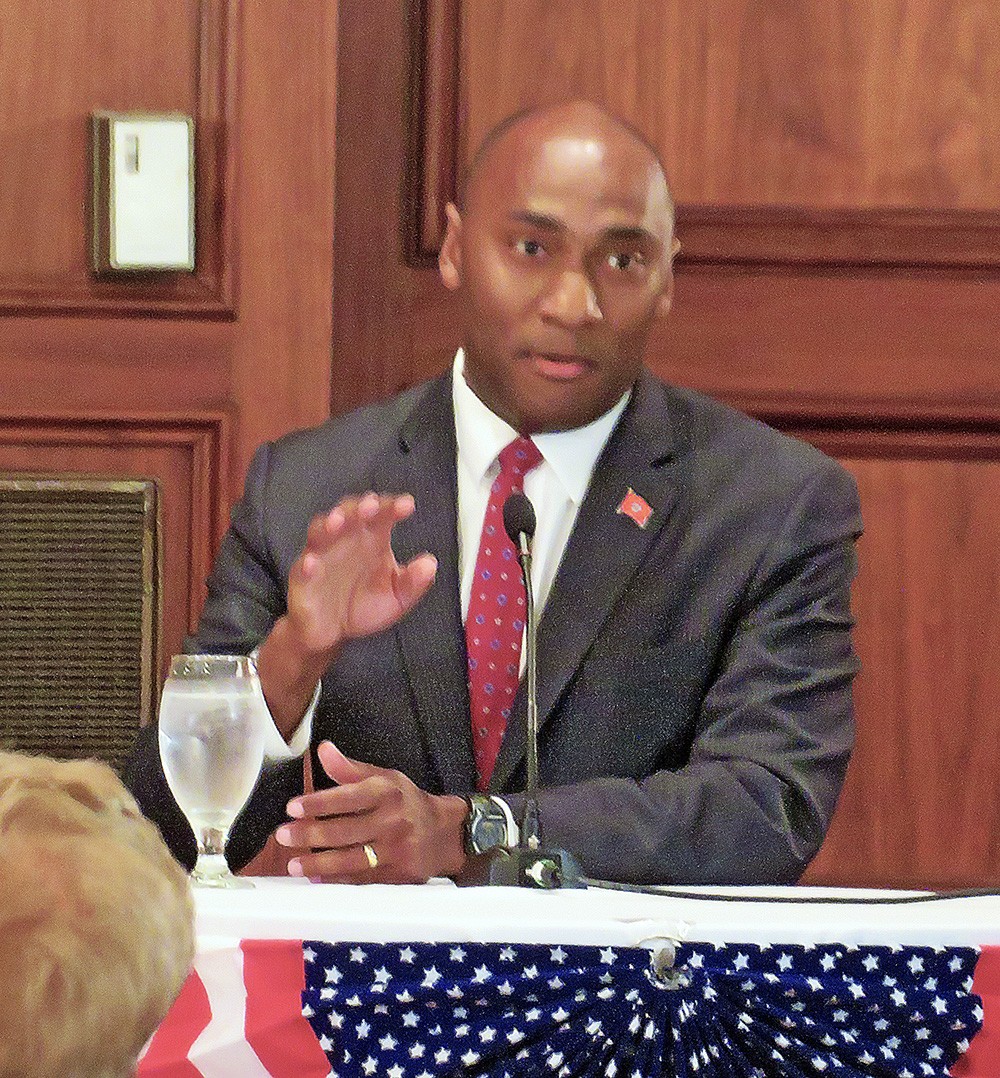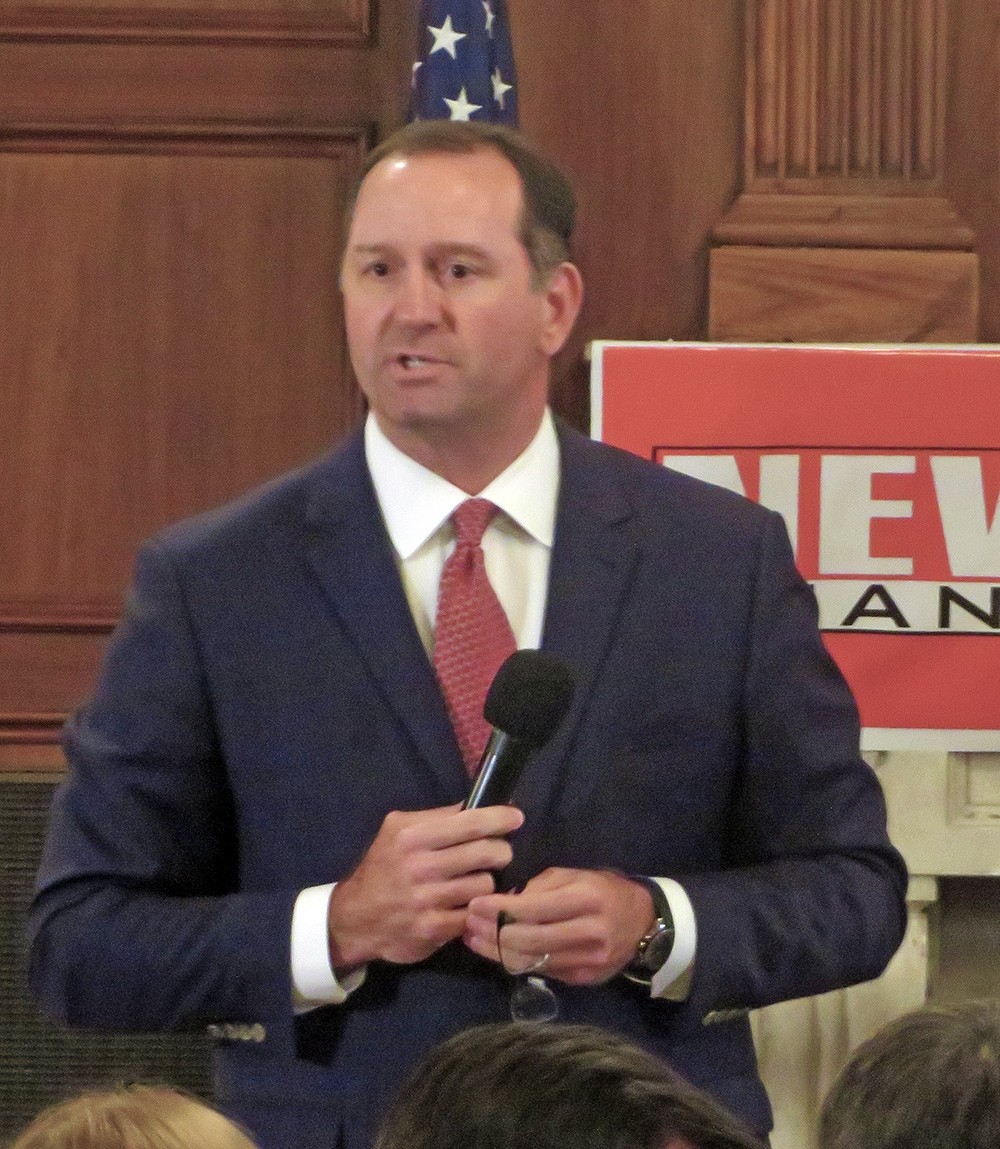 JB
JB
Democrat Lee Harris
Republican David Lenoir and Democrat Lee Harris squared off on Wednesday for their first one-on-one debate in the Shelby County Mayor’s race. The encounter was before a luncheon of the downtown Kiwanis Club of Memphis and was streamed live by WREG-TV, News Channel 3.
A close contest has been anticipated in this match between Lenoir, a fairly non-ideological Republican (“moderate” is probably too strong a term), and Harris, a polished Yale- JB
JB
Republican David Lenoir
educated lawyer and state Senator whose theoretical crossover potential has augured for a possible recapture of white Democrats who have defecred to Republican candidates in the last several county elections.
But Lenoir would use the occasion of the debate to open up a line of attack potentially troublesome to Harris.
The GOP candidate focused on his background both in the financial industry and as County Trustee and on the talking points {“great schools, great job opportunities, safe streets”) he used successfully in the GOP primary. Harris touted his experience as City Councilman and legislator an, somewhat surprisingly, given the predominantly Caucasian, white-collar cast of the Kiwanis audience, announced that the focus of his “multi-racial” campaign would be “poverty, inequality, and segregation.”
Lenoir had described himself in his opening as “someone who’s willing to be tough on violent crime” and availed himself of an early question from a question from moderator Stephanie Scurlock of WREG about school security to propose more “security officers” and to charge that “my opponent voted against a law providing stiffer penalties for criminals with guns.”
Though most attendees probably assumed that Harris would attempt to answer the charge, one way or another, in his own response to the question, he didn’t, emphasizing instead that it was the duty of county clerks to make sure records of lawbreakers seeking to purchase weapons were up to date and well reported.
The bill referred to by Lenoir was SB 1241 by state Senator Mark Norris, a measure backed fairly overhwelmingly by the Shelby county Crime Commission and the local law enforcement community, approved with virtual unanimity in the 2017 session, and later to become Public chapter 475, with Harris being the solitary No vote against the measure in its passage through the Judiciary Committee.Lenoir would repeat his accusation two more times during the course of the debate, and Harris both times declined again to respond to the charge.
Asked about the matter after the debate, Harris professed not to know “what he [Lenoir] was talking about.” His campaign would put out a press release later in which his campaign manager Danielle Inez, would say, “It’s not a time for engaging in the style of politics that is too prevalent in Washington.Unfortunately, though, in the debate today David Lenoir decided his only route to victory is by negative attacks. It’s a shame. It’s desperate.”
Harris had two other moments in the debate (“unforced errors,” one observer would call them) that seemed potentially problematic. At one point, apparently attempting to establish a personal connection to his announced themes regarding injustice, Harris made an off-handed remark about his having been “thrown into the back of a police car” as a youth, offering no further information about the matter.
At another point of the debate, regarding gun violence in general, Lenoir made a fairly conventional response acknowledging himself to be a gun owner but expressing his concern about the issue, with Harris beginning his response with a contrasting statement that he didn’t own a firearm and, in fact, had never fired one. While arguably commendable as.a fact, the admission seemed to some to distance Harris from the issue in terms of knowledgeability.
In the aforementioned press release from campaign manager Inez, the statement was made about Thursday’s debate that Harris had “rocked it.” Indeed, in most ways and on most issues he held his own and performed well, but it seemed obvious that Lenoir will challenge him again and again on the safety issue along the lines introduced and developed on Thursday.
In addition to his position on Norris’ “Crooks with Guns” legislation, Harris took a strong stand in the Senate against the present form of school-zone drug laws, which raise the penalty level foe offenses committed within 1000 yards of schools, parks, and other locations where children might gather.
Harris and other opponents have argued that — for basis geographical, not legal reasons — the laws have a disproportionate racial impact on minority offenders. The question of unintended consequences of such increased penalties was one of the subjects raised of gubernatorial candidates at Thursday’s legal forum at The Peabody.